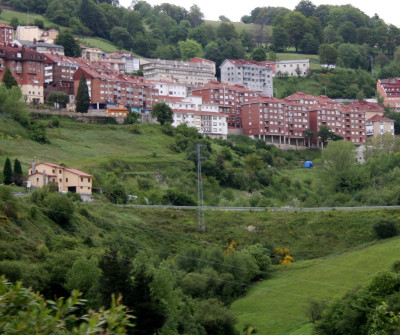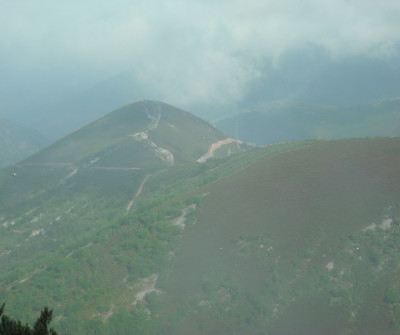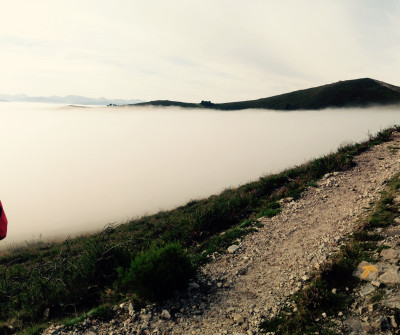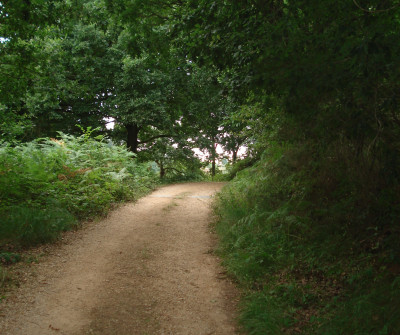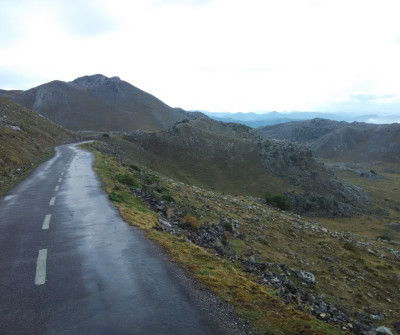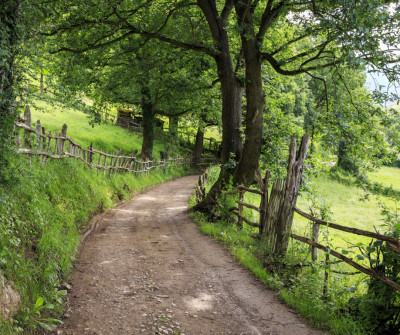





From San Xuan, you climb to Navariegu and the mountains of Sierra de la Guardia. If the weather is nice and there is no fog you can see the Bay of Biscay from here. After 8 km the Camino goes into a forest where you can take a detour to the monastery of Santa María la Real de Obona, founded in the 7th century by Prince Adelgaster. It is a Benedictine monastery. You enter a cloister through two arches with the coat of arms of the Crown of Castilla y León. The monastery has been abandoned and it is almost in ruins.
READ MOREThe Camino goes past Villaluz, Campiellu or L´Espín until you reach Bourres, already 18 kilometres away from the starting point.
From here, there are two alternatives: a modern road of 13 kilometres from here to La Puela/Pola de Allante. The old path goes through the mountains of Sierra de los Hospitales and is longer, 26.5 kilometres to Berducedo so that you may call it a day at Campiel.lu and continue the following day.
Those who take this beautiful second option must take enough provisions as there are up to 19 kilometres from one village to the next at some points. Before you leave you must also check the weather forecast with the emergency services and you should not follow this route if the weather is rough.
Pilgrims who decide to call it a day at La Puela/Pola de Allande and decide to go for a walk around the village will see the town hall, the church of San Andrés, the palace of Cienfuegos and several other examples of indiano architecture.
Tips from our postmen and women
What to do and see in Pola de Allande?

The village of La Puela/Pola de Allande shows several buildings built by migrants who returned home after making money in the Americas. They are usually called “casonas indianas” and to pay homage to these migrants a monument was erected at the Parque del Toral with replicas in Puerto Rico and Santo Domingo.
A few kilometres away from La Puela/Pola de Allande there is the Castro de San Chuis and a Romanesque 11th-century church in Celón. The local festival in La Puela/Pola de Allande is on September 8th to honour the Virgen del Avellano”.


 Filter
Filter